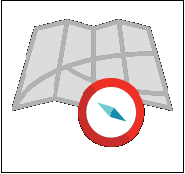Health advice for travel in Vietnam
At least 8 weeks before your trip, check the latest country-specific health advice from the National Travel Health Network and Centre (NaTHNaC) on the TravelHealthPro website. Each country-specific page has information on vaccine recommendations, any current health risks or outbreaks, and factsheets with information on staying healthy abroad. Guidance is also available from NHS (Scotland) on the FitForTravel website. General information on travel vaccinations and a travel health checklist is available on the NHS website. You may then wish to contact your health adviser or pharmacy for advice on other preventive measures and managing any pre-existing medical conditions while you’re abroad. While travel can be enjoyable, it can sometimes be challenging. There are clear links between mental and physical health, so looking after yourself during travel and when abroad is important. Information on travelling with mental health conditions is available in our guidance page. Further information is also available from the National Travel Health Network and Centre (NaTHNaC).
If you’re travelling with prescription or over-the-counter medicine, read this guidance from NaTHNaC on best practice when travelling with medicines.
If you’re taking prescription medication into Vietnam, carry it in your hand-luggage with a copy of the prescription. If it has a total import value greater than US$100, you should declare it at customs. Some specific medicines can be hard to find in Vietnam and many medications on sale are counterfeit.
Vietnam has restrictions on medicines which it classifies as “addictive” or “psychotropic” medicine. These include medicine that can be used for the treatment of addiction, to treat anxiety, depression, insomnia and other conditions. The rules say that you must not have more than the quantity prescribed by a doctor for 7 days (addictive medicine) or 10 days (psychotropic medicine). The prescription should be in English or Vietnamese and include your name and age and list the name, volume and dosage of the medicine(s). It must also include the doctor’s signature or address. If you’re unsure if your medication falls within these categories or if you need to bring in more medication than is usually allowed you should contact the Vietnamese Embassy in advance of travelling.
Medical treatment
If you need emergency medical assistance during your trip, dial 115 and ask for an ambulance. You should contact your insurance/medical assistance company promptly if you are referred to a medical facility for treatment.
The healthcare system in Vietnam is resilient and effective for the majority of medical care across the country as a whole. However, there are differences in capacity and capability between medical services in cities and some rural areas. More complicated treatment may require evacuation to a central hospital (in Hanoi or Ho Chi Minh City). The most complex medical cases may require evacuation to another country. Make sure you have adequate travel health insurance and accessible funds to cover the cost of any medical treatment abroad and repatriation. Complete the next of kin details in the back of your passport.
WRITE COMMENT
Related Category
TRENDING NOW
-
Cave explore 2
08 Jul, 2021
-
Hanoi winter season
21 Apr, 2021
-
Best weather to visit Hanoi
01 Apr, 2021
-
Raining season in Hanoi
01 Apr, 2021
-
Lost passport in Hanoi and solution
01 Apr, 2021
-
Visa extension service in Hanoi
01 Apr, 2021
















READER COMMENTS (No Comment)
No comments for this articls!